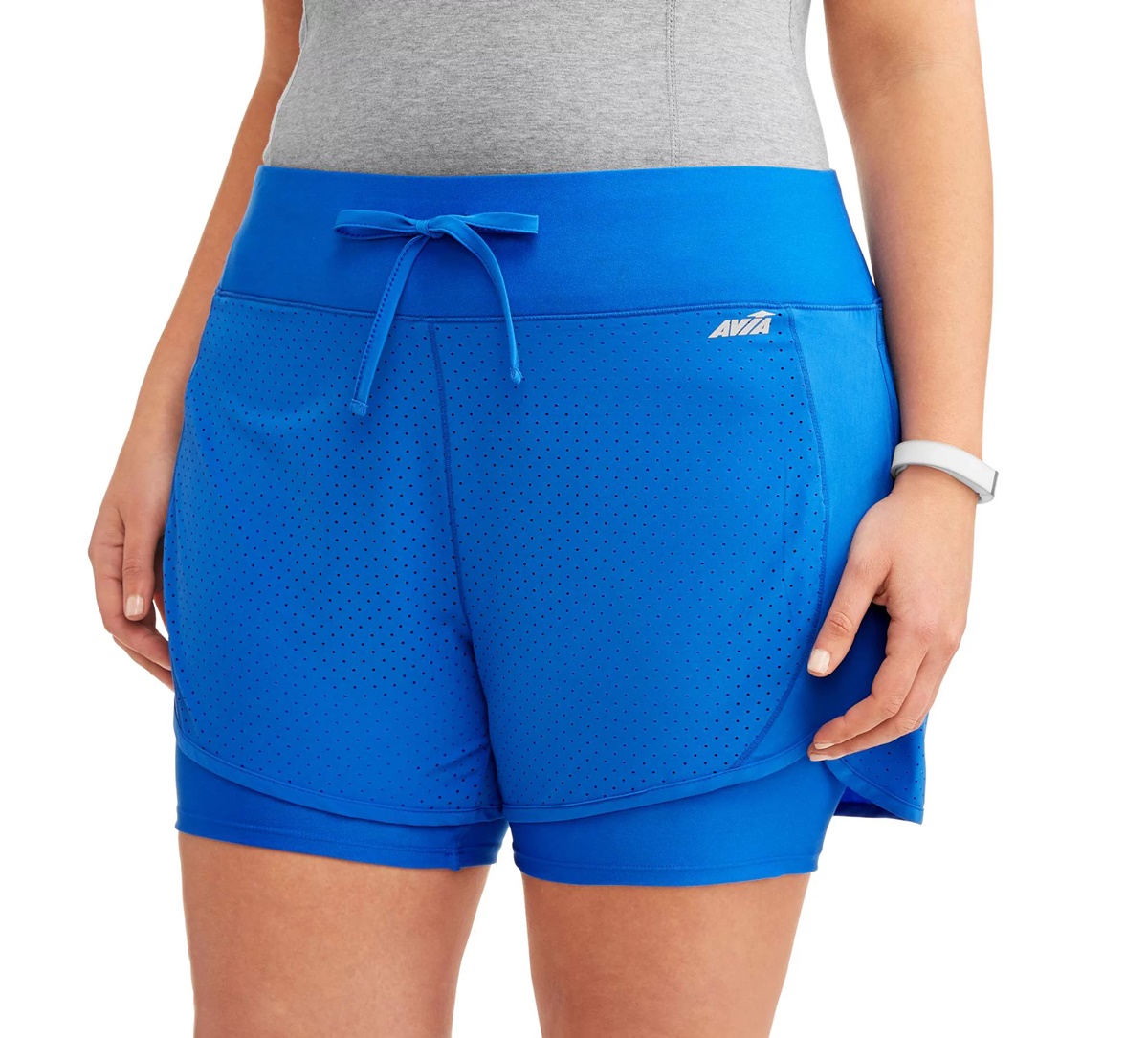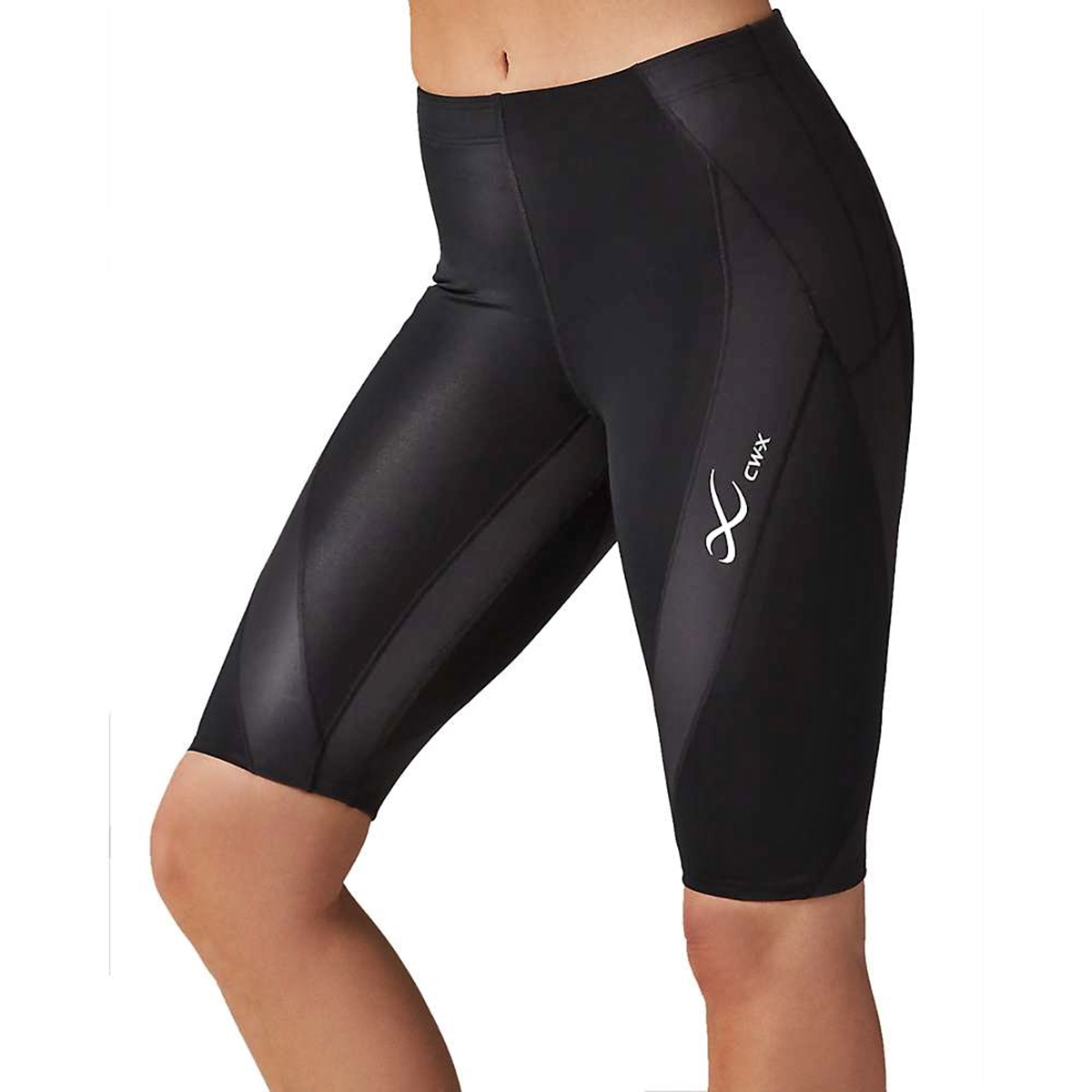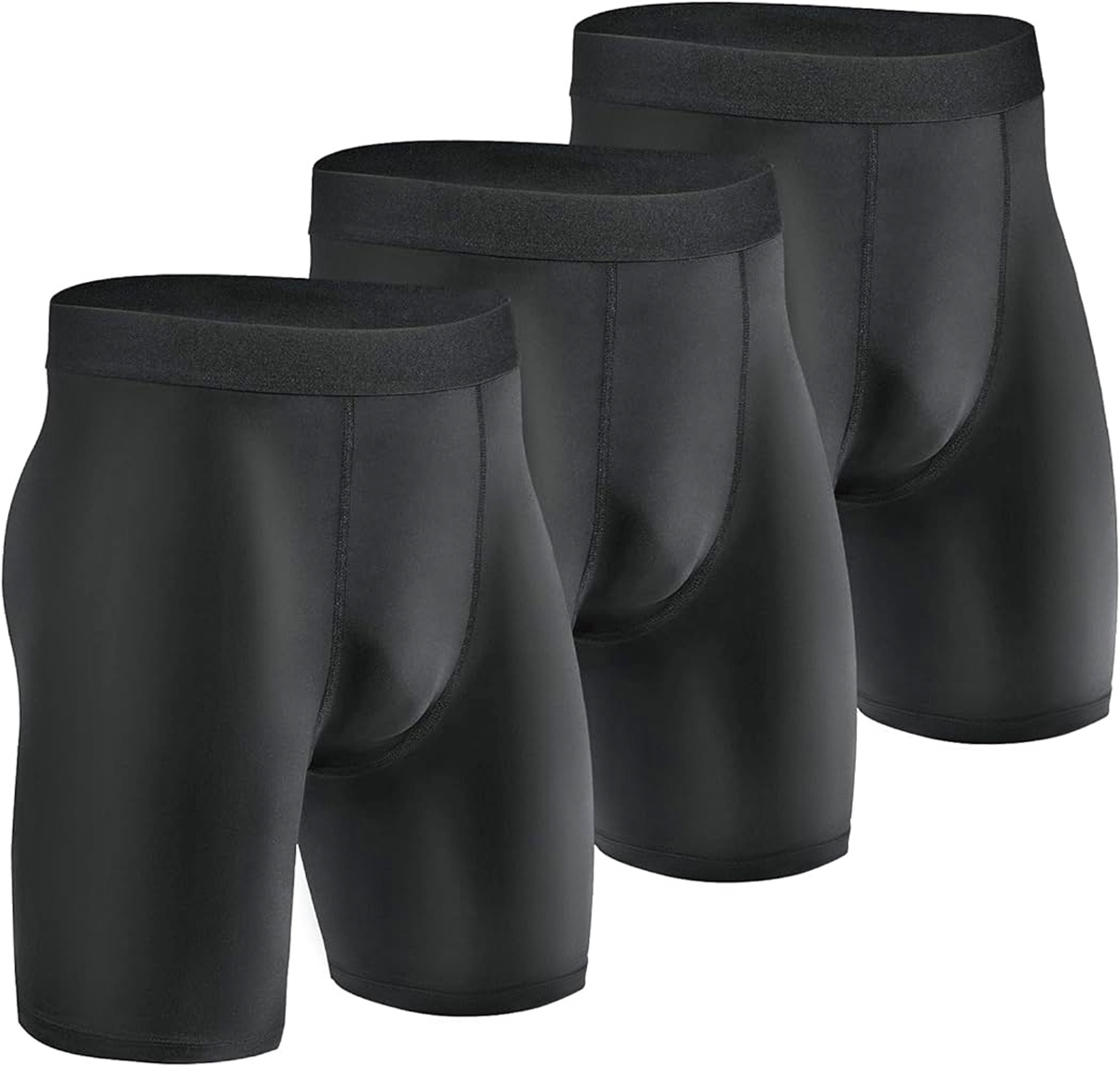Home>Misc>Featured>What Fitness Tracker To Buy If You Do Not Have A Cell Phone
Featured
What Fitness Tracker To Buy If You Do Not Have A Cell Phone
Published: October 16, 2023
Looking for a fitness tracker but don't have a cell phone? Discover our featured selection of fitness trackers perfect for you!
Introduction
As the world becomes increasingly interconnected through smartphones and other mobile devices, it may seem that a cell phone is a prerequisite for owning a fitness tracker. After all, most fitness trackers on the market today rely on a smartphone connection to sync and track your progress. However, not everyone owns a cell phone or wants to be tied to one while exercising.
But fear not! There are still plenty of options available for those fitness enthusiasts who prefer to go phone-free. In this article, we will explore the best fitness trackers to buy if you do not have a cell phone. Whether you’re a dedicated gym-goer or a casual walker, there is a fitness tracker out there that will meet your needs.
By investing in a fitness tracker without a cell phone, you can still track your steps, monitor your heart rate, and analyze your sleep patterns without the need for a smartphone. These devices offer a range of features that can help you stay on top of your fitness goals, even if you prefer not to carry a bulky phone with you.
So why would you want a fitness tracker without a cell phone? There are several reasons why this might be the right choice for you. For starters, it offers a more streamlined and minimalist approach to fitness tracking. Without the distraction of notifications and calls, you can focus solely on your workout and achieving your fitness goals.
Additionally, a fitness tracker without a cell phone provides greater flexibility and freedom. You can go for a run or hit the gym without worrying about your phone getting in the way or getting damaged. It also allows you to disconnect from the digital world and immerse yourself in the present moment, which can be beneficial for your mental well-being.
Moreover, owning a fitness tracker without a cell phone can be a cost-effective option. Instead of paying for both a smartphone and a tracker, you can save money by investing in a device that doesn’t require a phone connection.
Now that we’ve discussed the advantages of a fitness tracker without a cell phone, let’s delve into the essential factors to consider when choosing the right device for your needs.
Why Buy a Fitness Tracker Without a Cell Phone?
While many fitness trackers on the market today rely on a smartphone connection for syncing and data tracking, there are several reasons why you might consider purchasing a fitness tracker without a cell phone:
- Simplicity and Focus: With a fitness tracker that doesn’t require a cell phone, you can enjoy a more streamlined and minimalist approach to tracking your health and fitness. Without the distraction of notifications and calls, you can focus entirely on your workout and achieving your fitness goals.
- Flexibility and Freedom: A fitness tracker without a cell phone provides you with greater flexibility and freedom. You can engage in physical activities such as running, cycling, or swimming without the need to carry a bulky phone with you. This allows you to move more freely and comfortably, enhancing your overall exercise experience.
- Easier Accessibility: Not everyone owns a cell phone, or there may be instances where you don’t want to bring your phone along. By opting for a fitness tracker that doesn’t require a cell phone, you can still track your fitness progress and access your data without relying on a smartphone.
- Cost Savings: Investing in a fitness tracker without a cell phone can be a cost-effective option. Instead of purchasing a smartphone and a separate fitness tracker, you can save money by buying a device that doesn’t require a phone connection.
- Digital Detox: In today’s digital age, it’s becoming increasingly important to take breaks from technology and disconnect. By using a fitness tracker that doesn’t rely on a cell phone, you can disconnect from the digital world and focus on your physical activities and personal well-being.
Overall, a fitness tracker without a cell phone offers a range of benefits, including simplicity, flexibility, and cost savings. It allows you to have a dedicated device solely for tracking your health and fitness without the need for a smartphone. Now that you understand the advantages, let’s explore the factors to consider when choosing a fitness tracker without a cell phone.
Factors to Consider When Choosing a Fitness Tracker Without a Cell Phone
When searching for a fitness tracker that doesn’t require a cell phone, there are several key factors to consider to ensure you make the right choice:
- Compatibility: One important factor is compatibility with your existing devices. If you primarily use a PC or laptop, look for a fitness tracker that is compatible with computer systems. This will allow you to sync your data, view your progress, and access the features without the need for a smartphone.
- Connectivity Options: Consider the available connectivity options for the fitness tracker. Some devices connect to Wi-Fi, allowing you to sync your data directly with online platforms or fitness apps. Others may use Bluetooth to connect to your computer or laptop, enabling wireless data transfer.
- Built-in Display and Controls: Look for a fitness tracker that has a built-in display and controls. This will allow you to view your stats, check the time, and navigate through the device’s functions without needing a cell phone. A touch screen or physical buttons can provide easy navigation, even without a smartphone.
- Battery Life: Consider the battery life of the fitness tracker. Since you won’t be relying on your cell phone’s battery to power the tracker, it’s important to choose a device with a long-lasting battery. This will ensure that you can track your activities and monitor your progress throughout the day without needing to constantly recharge.
- Features and Tracking Abilities: Evaluate the features and tracking abilities of the fitness tracker. Depending on your preferences and fitness goals, you may want a device that can track steps, distance, calories burned, heart rate, sleep patterns, and more. Choose a tracker that offers the metrics that are most important to you.
Additionally, it’s essential to consider the design, comfort, and durability of the fitness tracker. Look for a device that fits your style and is comfortable to wear during physical activities. Pay attention to the materials used and whether it’s water-resistant or sweat-proof, depending on your exercise routine. Finally, read reviews and consider the overall reputation and customer satisfaction of the brand and model you’re considering.
By considering these factors, you can make an informed decision when choosing a fitness tracker that doesn’t require a cell phone. Now, let’s explore some popular fitness trackers available for individuals without a cell phone connection.
Fitness Trackers Compatible with PCs and Laptops
If you primarily use a PC or laptop and want a fitness tracker that can sync with your computer, there are several options available:
- Fitbit Inspire HR: The Fitbit Inspire HR is a popular fitness tracker that is compatible with PCs and laptops. It uses Fitbit’s desktop app, which allows you to sync your data, track your progress, and set goals directly from your computer. The Inspire HR offers heart rate tracking, sleep monitoring, and activity tracking, making it a versatile option for fitness enthusiasts.
- Garmin Vivosmart 4: The Garmin Vivosmart 4 is another fitness tracker that can be synced with PCs and laptops. Garmin’s online platform, Garmin Connect, provides desktop compatibility, allowing you to view your activity data, analyze your sleep patterns, and set personalized goals. The Vivosmart 4 also offers advanced health monitoring features, such as blood oxygen saturation and body battery energy monitoring.
- Huawei Band 3 Pro: The Huawei Band 3 Pro is a budget-friendly fitness tracker that can be connected to a PC or laptop. The device offers an intuitive user interface and syncs with Huawei’s Health app. Through the app, you can track your workouts, monitor your heart rate, and view detailed reports on your overall fitness progress.
- Withings Steel HR Sport: The Withings Steel HR Sport is a stylish hybrid smartwatch that is compatible with both PCs and laptops. Withings offers a web-based platform, Withings Health Mate, which allows you to sync and manage your fitness data effortlessly. The Steel HR Sport combines an analog watch face with a digital display that shows your activity metrics and smartphone notifications.
- Polar Ignite: The Polar Ignite is a feature-packed fitness tracker that can sync with PCs and laptops. It uses Polar’s Flow app for desktop compatibility, enabling you to monitor your training progress, analyze your sleep quality, and access personalized guidance for achieving your fitness goals. The Ignite also offers integrated GPS, providing accurate tracking of your outdoor activities.
These are just a few examples of fitness trackers that are compatible with PCs and laptops. When choosing a device, consider the specific features, design, and price range that align with your preferences and fitness goals. Remember to read customer reviews and do thorough research to ensure the tracker meets your needs.
Now that we’ve explored fitness trackers that are compatible with PCs and laptops, let’s move on to the next category: fitness trackers that use Wi-Fi or Bluetooth connections.
Fitness Trackers That Use Wi-Fi or Bluetooth Connections
If you prefer fitness trackers that rely on Wi-Fi or Bluetooth connections, there are several options available to suit your needs:
- Apple Watch: The Apple Watch is a popular choice for those looking for a fitness tracker with Wi-Fi and Bluetooth connectivity. With the Apple Watch, you can sync your data and track your fitness progress using the watch’s built-in fitness app or third-party fitness apps available in the App Store. It offers a wide range of fitness features, including heart rate monitoring, GPS tracking, and personalized coaching.
- Samsung Galaxy Watch Active2: The Samsung Galaxy Watch Active2 is an Android-friendly option that uses Bluetooth to connect with your smartphone or PC. With the Samsung Health app, you can sync your fitness data, track your workouts, and monitor your heart rate. The Galaxy Watch Active2 also offers automatic workout tracking and a variety of fitness-oriented features.
- Fitbit Versa 3: The Fitbit Versa 3 is a versatile fitness tracker that supports both Wi-Fi and Bluetooth connections. It uses the Fitbit app for syncing data and provides a comprehensive overview of your fitness activities, heart rate, and sleep patterns. The Versa 3 also offers built-in GPS, enabling accurate tracking of your outdoor workouts.
- Garmin Forerunner 245 Music: The Garmin Forerunner 245 Music is a feature-rich fitness tracker that connects via Bluetooth. This watch is specifically designed for runners and provides advanced running dynamics, including cadence, ground contact time, and stride length. It also has an integrated music player, allowing you to listen to your favorite tunes during your workouts.
- Xiaomi Mi Band 5: The Xiaomi Mi Band 5 is an affordable fitness tracker that utilizes Bluetooth connectivity. It pairs with the Mi Fit app, giving you access to fitness tracking features like step counting, heart rate monitoring, and sleep tracking. The Mi Band 5 also offers a long battery life and a variety of customizable watch faces.
These are just a few examples of fitness trackers that use Wi-Fi or Bluetooth connections. Consider factors such as design, compatibility with your devices, battery life, and the specific features you require for your fitness journey. Each tracker has its unique strengths, so be sure to read customer reviews and compare options before making your final decision.
Now that we’ve explored fitness trackers with Wi-Fi or Bluetooth connections, let’s move on to the next category: fitness trackers with built-in displays and controls.
Fitness Trackers with Built-in Display and Controls
If you prefer the convenience of a fitness tracker with a built-in display and controls, there are several options available to suit your needs:
- Fitbit Charge 4: The Fitbit Charge 4 is a popular fitness tracker with a built-in display and touchscreen controls. It allows you to easily view your fitness metrics, track your workouts, and monitor your sleep patterns. The Charge 4 also offers built-in GPS, so you can accurately track your outdoor activities without the need for a smartphone.
- Garmin Venu: The Garmin Venu is a versatile fitness tracker that features a vibrant AMOLED touchscreen display and intuitive controls. It provides comprehensive fitness tracking, including heart rate monitoring, GPS tracking, and advanced sleep analysis. The Venu also offers on-screen animated workouts and music storage, making it an all-in-one fitness companion.
- Samsung Gear Fit2 Pro: The Samsung Gear Fit2 Pro is a sleek and compact fitness tracker with a vibrant curved AMOLED display. It allows you to view your activity stats, track your workouts, and receive notifications from your smartphone. The Gear Fit2 Pro also offers built-in GPS and water resistance, making it suitable for tracking swimming workouts.
- Fitbit Sense: The Fitbit Sense is a premium fitness tracker that combines a built-in display with advanced health tracking features. It not only monitors your fitness metrics but also offers stress management tools, EDA scans, and skin temperature tracking. The Sense’s touchscreen display and easy-to-use controls provide a seamless user experience.
- Amazfit Bip U Pro: The Amazfit Bip U Pro is a budget-friendly fitness tracker with a vibrant color display and user-friendly controls. It allows you to monitor your heart rate, track your workouts, and analyze your sleep patterns. The Bip U Pro also provides notification alerts and has a long battery life, ensuring uninterrupted use.
These are just a few examples of fitness trackers with built-in displays and controls. When choosing a device, consider factors such as display quality, ease of use, available features, and overall design. Additionally, ensure that the tracker provides the necessary tracking capabilities to support your fitness goals.
Now that we’ve explored fitness trackers with built-in displays and controls, let’s move on to the next section where we will discuss some popular fitness trackers ideal for individuals without a cell phone connection.
Popular Fitness Trackers for Individuals Without a Cell Phone
If you’re in search of a fitness tracker that doesn’t require a cell phone connection, there are several popular options available:
- Fitbit Inspire 2: The Fitbit Inspire 2 is a compact and affordable fitness tracker that offers an array of features. It tracks your daily activities, heart rate, sleep patterns, and even provides guided breathing exercises. The Inspire 2 has a vibrant touchscreen display and easy-to-navigate controls, making it ideal for individuals who don’t own a cell phone.
- Garmin vivosmart 4: The Garmin vivosmart 4 is a slim and stylish fitness tracker that doesn’t require a cell phone connection for tracking your health and fitness. It offers advanced sleep monitoring, body energy monitoring, and all-day stress tracking. With its OLED touchscreen display and touch-sensitive button, you can easily access and view your fitness information.
- Withings Move: The Withings Move is a hybrid smartwatch that combines a traditional watch face with fitness tracking capabilities. It doesn’t rely on a cell phone connection and tracks your steps, distance, calories burned, and sleep quality. The Move also has a long-lasting battery life and is water-resistant, making it a suitable choice for those who lead an active lifestyle.
- Samsung Galaxy Fit2: The Samsung Galaxy Fit2 is a sleek and lightweight fitness tracker that offers 24/7 tracking for your activities, heart rate, and sleep patterns. It provides a clear and easy-to-read AMOLED display, allowing you to view your fitness stats at a glance. The Galaxy Fit2 also features a variety of customization options and long battery life.
- Xiaomi Mi Smart Band 6: The Xiaomi Mi Smart Band 6 is a feature-packed fitness tracker that doesn’t rely on a cell phone connection. It offers a larger full-color AMOLED display, comprehensive tracking of your fitness activities, heart rate monitoring, sleep analysis, and stress level tracking. The Smart Band 6 also includes women’s health tracking features and 30 fitness modes to choose from.
These popular fitness trackers have proven to be reliable and efficient for individuals without a cell phone connection. They offer a range of features, comfortable designs, and intuitive controls that make fitness tracking hassle-free. Whether you’re a beginner or a seasoned fitness enthusiast, there is a fitness tracker on this list to suit your needs.
Remember to consider factors such as the specific features you require, design preferences, and budget when making your decision. Reading customer reviews and comparing the options will also help ensure you choose the right fitness tracker for your lifestyle.
Now that we’ve explored popular fitness trackers for individuals without a cell phone connection, let’s conclude the article by summarizing the key points discussed.
Conclusion
Choosing a fitness tracker without a cell phone is a viable option for individuals who prefer a more streamlined and focused approach to their fitness journey. Whether you prioritize compatibility with PCs and laptops, Wi-Fi or Bluetooth connectivity, or a built-in display and controls, there are various fitness trackers available to meet your needs.
By considering factors such as compatibility, connectivity options, battery life, features and tracking abilities, and design, you can make an informed decision and find the perfect fitness tracker for your preferences and fitness goals. Popular options include the Fitbit Inspire HR, Garmin Vivosmart 4, Samsung Galaxy Watch Active2, and Apple Watch, among others.
Owning a fitness tracker without a cell phone offers numerous benefits, including simplicity and focus, flexibility and freedom, easier accessibility, cost savings, and the opportunity for a digital detox. It allows you to track your steps, monitor your heart rate, analyze your sleep patterns, and stay on top of your fitness goals without the need for a smartphone.
Ultimately, the right fitness tracker will enhance your fitness journey by providing you with the necessary tools and insights to reach your goals. Whether you’re a dedicated athlete, a novice exerciser, or simply someone who wants to lead a healthier lifestyle, a fitness tracker without a cell phone can be a valuable companion on your fitness journey.
So, why wait? Explore the options mentioned in this article, do your research, and find the perfect fitness tracker that suits your needs. Start tracking your fitness progress, stay motivated, and achieve your health and wellness goals with the help of a reliable fitness tracker without a cell phone connection!






